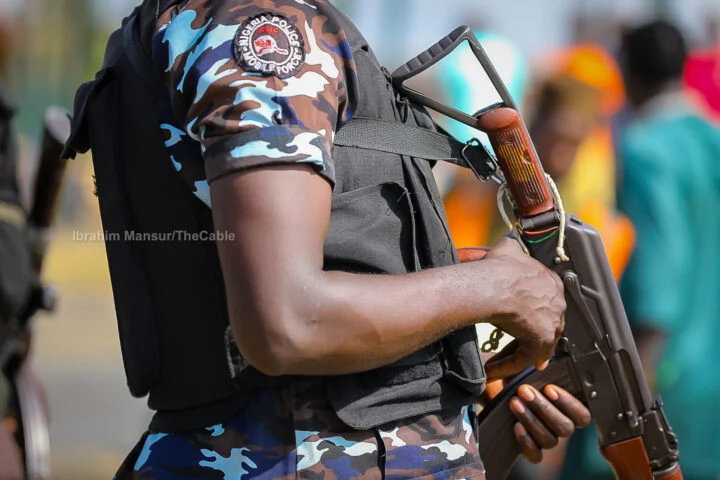The President, Major General Muhammadu Buhari (retd), was forced to reverse his decision to abolish the fuel subsidy after receiving security advice.
According to a reliable security source, intelligence provided to the President by security authorities revealed that the protests that would have preceded the subsidy withdrawal may have been even worse than the #EndSARS riots, which paralyzed several parts of the country in 2020.
He said, “The police, DSS, the National Intelligence Agency and the Office of the National Security Adviser usually send security reports to the President on the impact of sensitive issues like fuel subsidy. Reports given to the President showed that the protests being planned by unions would have been 10 times bigger than the #EndSARS protests.
“Petrol price was projected to increase to about N350 if the international price of oil continues to rise. This would have increased the cost of everything and encouraged everyone to take to the streets.
“They also drew the President’s attention to the coups sweeping many African countries and how the protests could have been hijacked by the opposition. This was why the President not only delayed subsidy removal but transferred the responsibility to the next government.”
Former President Goodluck Jonathan had in 2012 faced a similar challenge when he removed the petrol subsidy forcing the price to rise from N65 per litre to N140.
The incident sparked protests in several parts of the country especially in Lagos where thousands converged on Ojota for over a week, grounding commercial activities in the country’s commercial capital.
“Some ministers actually advised the President to go ahead with subsidy removal because of the potential investments that deregulation would bring. But the President could not have taken such advice. The country is currently facing insecurity in several states, people are hungry. Outright removal of subsidy would have led to a rise in the cost of goods and protests. The alternative given to the President is to increase fuel prices slightly. This could be done gradually by adding N3 or N5 periodically,” he said.
When one of our correspondents called the Senior Special Assistant to the President on Media and Publicity, Garba Shehu, on the phone on Thursday for a reaction, he declined to make any comments on the issue
But, the Special Adviser to the President on Media and Publicity, Femi Adesina, had in an interview on Channels Television’s ‘Sunrise Daily’ programme on Wednesday, said subsidy removal would have forced Nigeria into a tailspin.
Adesina added, “If that subsidy had been removed, it would have been a show of will that we want to solve this problem (oil fraud). There was a will but if you have a will and what you want to do will upturn the system, throw the country into a tailspin, then you would have to reconsider, you will weigh it. That is why further consultations will still happen.”
The Nigeria Labour Congress and the Trade Union had last year said it would on Thursday (yesterday) and February 2 embarked on nationwide protests against the government’s plan to remove fuel subsidy.
But on Tuesday, the union shelved the protests following the government decision to shift fuel subsidy removal by 18 months and amend the Petroleum Act, whose implementation was earlier scheduled to start in June.
Reps to summon major oil marketers, transporters, Customs, others
Meanwhile, the House of Representatives, on Thursday, adopted two motions to institutionalise an earlier order by the Speaker, Femi Gbajabiamila, for an investigation of the current state of Nigeria’s four refineries and the actual volume of petrol being consumed by the country daily.
Gbajabiamila had earlier on Wednesday ordered separate probes into the issues, setting up ad hoc committees to carry out the tasks.
The Speaker had stated that the facts must first be made available before the Federal Government takes decisions on the subsidy being paid on petroleum products.
On Thursday, two motions were moved and adopted based on Gbajabiamila’s order.
The Minority Leader, Ndudi Elumelu, titled ‘Need to Ascertain the Actual Daily Consumption of Premium Motor Spirit in Nigeria.’
Elumelu said, “The House notes the concerns of Nigerians over the recurring incidence of fuel scarcity. The House is concerned about the huge sums of money being paid as subsidies and the controversies it has been generating.
“The House is worried that it may not be possible to ascertain the actual sums of subsidy required and being paid without accurate data of the daily consumption of Premium Motor Spirit in Nigeria;
“The House acknowledges that when such data is generated, it will enhance effective planning, supply and distribution of the said product to Nigerians.”
Adopting the motion, the House asked an ad hoc committee, which Gbajabiamila set up earlier on Wednesday, to “investigate the actual daily consumption of premium motor spirit in Nigeria and report back within eight weeks for further legislative action.”
Similarly, Ademorin Kuye moved a motion titled ‘Need to Ascertain the Actual Cost of Rehabilitation of Nigerian Refineries,’ noting the non-functionality and deplorable state of the nation’s refineries.
Kuye said, “The House also notes that several billions of dollars of taxpayer’s money have been expended into the Turn Around Maintenance and rehabilitation of the nation’s refineries without any productive outcome.
“The House observes that past government efforts have been sabotaged by variation costs from partners or lack of proper project costing and analysis.
“The House is cognizant of the government’s intention to commence another phase of rehabilitation of the refineries and if proper steps are not taken, the country may be plunged into repeating past mistakes.”
Adopting the motion, the House asked the other committee to “ascertain the actual cost of rehabilitating the Nigerian Refineries and report back within six weeks for further legislative action.”
A top legislator said on Thursday that major oil marketers and transporters would be summoned by the panel in order to provide an insight into how much petrol Nigeria consumed in a day.
The lawmaker said the House was not satisfied with the estimates provided by the NNPC. He said the ad hoc committee would work as transparently as possible.
The lawmaker, who wished to remain anonymous, said, “The committee will summon major marketers to disclose how much petrol they buy from NNPC and how much they sell on average. We will also be inviting stakeholders in the transport sector to explain how much their members spend on petrol on a daily basis.
“We cannot believe NNPC’s claim that Nigeria consumes over 65 million litres a day is outrageous. All of them will be summoned to explain what is happening. We also hope to summon customs and others to explain how petrol is being smuggled out of the country. Are tankers going through bush paths?”
In a related development, marketers of Premium Motor Spirit, popularly called petrol, on Thursday promised to cooperate with the National Assembly as it moves to investigate the actual volume of PMS consumed in Nigeria.
According to them, NNPC, being the only importer of petrol into Nigeria, has been the one providing figures on the volume of petrol consumed in Nigeria over the years.
The marketers also said that the queues for petrol in Abuja and neighbouring states of Nasarawa and Niger were due to panic buying by consumers.
Speaking through the President, Petroleum Products Retail Outlets Owners Association of Nigeria, Billy Gillis-Harry, the oil dealers stated that it was important for the National Assembly to ascertain the actual volume of petrol consumed nationwide.
“We will cooperate with them if they call us legitimately and the information we will give to them will be used for the benefit of Nigeria,” Gillis-Harry said.
He added, “We are aware of the move by the lawmakers concerning this issue and we think it is in the right direction. So it is something that will get our cooperation as soon as they contact us.”
Asked whether there were issues with the Pipelines Product Marketing Company, a subsidiary of NNPC, and if this was affecting the supply of petrol, considering the queues in Abuja and neighbouring states, he replied, “That is not correct. PPMC/NNPC is trying to ensure supply.
“The queues are basically because people have been involved in panic buying. When announcements were made that the subsidy might be removed and petrol price would increase, people started buying fuel in their cars and taking it home
“And this is very dangerous because it can burn down the building. I’ve been able to consult with my national officers in different depots and there is no issue at the PPMC that is affecting supplies. So it is just panic buying.”
World Bank, IMF may decline Nigeria’s loan request over fuel subsidy
The World Bank and the International Monetary Fund may decline loan requests from Nigeria, as the Federal Government shuns their advice on fuel subsidy removal.
In a report on August 17, 2020, Reuters quoted sources as saying that the World Bank was unlikely to approve a much-needed $1.5bn for Nigeria in August as planned due to concerns over desired reforms.
It said the World Bank, which had said Nigeria could be heading towards its greatest fiscal crisis in 40 years, had aimed to bring the loan to its board for approval last month, but the sources said negotiations over what Nigeria would do to secure it were incomplete.
Reuters said fuel subsidies and electricity tariffs were being discussed.
In November 2021, the World Bank stressed the need for the government to remove the fuel subsidy. It urged the government to remove the costly petrol subsidy within the next three-to-six months.
According to the World Bank, further delay in removing the fuel subsidy, described as a major drain and waste on the economy, could see the federal and state governments unable to pay salaries from 2022.
In its November edition of the Nigeria Development Update, the multilateral institution, said, “Urgent priorities for the next three to six months include reducing inflation, improving exchange-rate management, mobilising additional oil and nonoil revenues, eliminating the PMS subsidy and redirecting expenditures towards targeted cash transfers and other priority investments, fostering competitive markets, and improving infrastructure.”
In June 2021, an IMF team led by Ms Jesmin Rahman via a statement issued after a virtual meeting with the Nigerian authorities expressed concerns about the resurgence of fuel subsidies.
According to the statement, the team reiterated the importance of introducing a market-based fuel pricing mechanism.
The statement read in part, “The mission expressed its concern with the resurgence of fuel subsidies. It reiterated the importance of introducing market-based fuel pricing mechanism and the need to deploy well-targeted social support to cushion any impact on the poor.”
In November 2021, the IMF also advised the Nigerian government to completely remove fuel and electricity subsidies in early 2022.
The Washington-based organisation noted that the removal of fuel and electricity subsidies should be considered a priority as part of the government’s fiscal policy.
It said this after its official staff visit to the country under the Article IV Mission.
“The complete removal of regressive fuel and electricity subsidies is a near-term priority, combined with adequate compensatory measures for the poor. The mission stressed the need to fully remove fuel subsidies and move to a market-based pricing mechanism in early 2022 as stipulated in the 2021 Petroleum Industry Act.
“In addition, the implementation of cost-reflective electricity tariffs as of January 2022 should not be delayed. Well-targeted social assistance will be needed to cushion any negative impacts on the poor particularly in light of still elevated inflation,” the statement read in part.
The IMF also noted that Nigeria’s past experiences with fuel subsidy removal, which have all been short-lived and reversed, emphasized the importance of building a consensus and improving public trust on the protection of the poor and efficient and transparent use of the saved resources.
The IMF had on April 28 approved Nigeria’s request for emergency financial assistance of $3.4bn to support the country’s efforts in addressing the severe economic impact of the COVID-19 shock and the sharp fall in oil prices.
The Washington-based fund also published the country’s letter of intent in a detailed report released on April 29.
In the letter, the Minister of Finance, Budget and National Planning, Mrs Zainab Ahmed, and the Central Bank of Nigeria Governor, Mr Godwin Emefiele, pledged that fuel subsidy would not return.
“The recent introduction and implementation of an automatic fuel price formula will ensure fuel subsidies, which we have eliminated, do not reemerge,” the Federal Government told the IMF in the letter dated April 21, 2020.
However, the Nigerian government has backtracked on this pledge and shunned recommendations from the World Bank and IMF.
In August 2021, there was a report that Nigeria would receive $3.35bn as its share of the IMF $650bn special drawing rights to help boost the liquidity of member countries.
Also, in April 2021, the Senate approved the sums of $1.5bn and €995m external loans for the Federal and state governments.
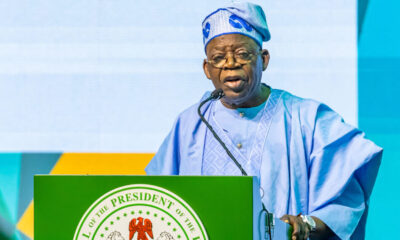
 BIG STORY4 days ago
BIG STORY4 days ago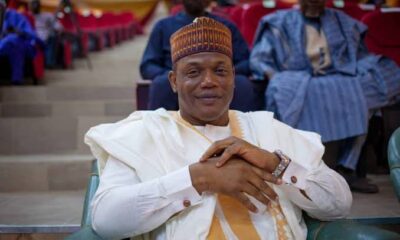
 BIG STORY4 days ago
BIG STORY4 days ago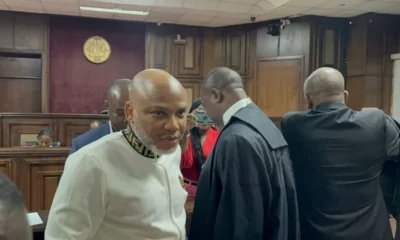
 BIG STORY2 days ago
BIG STORY2 days ago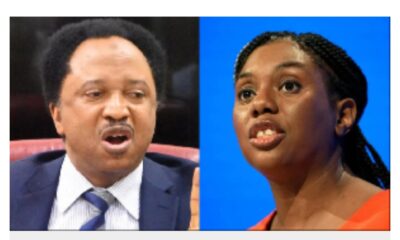
 BIG STORY4 days ago
BIG STORY4 days ago
 BIG STORY3 days ago
BIG STORY3 days ago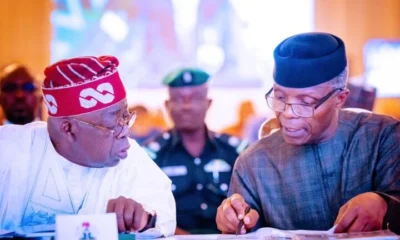
 BIG STORY1 day ago
BIG STORY1 day ago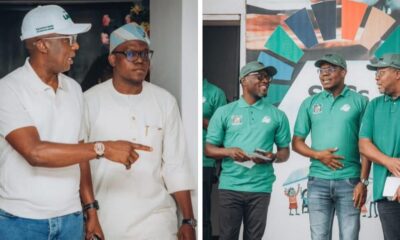
 BIG STORY1 day ago
BIG STORY1 day ago
 BIG STORY3 days ago
BIG STORY3 days ago



















